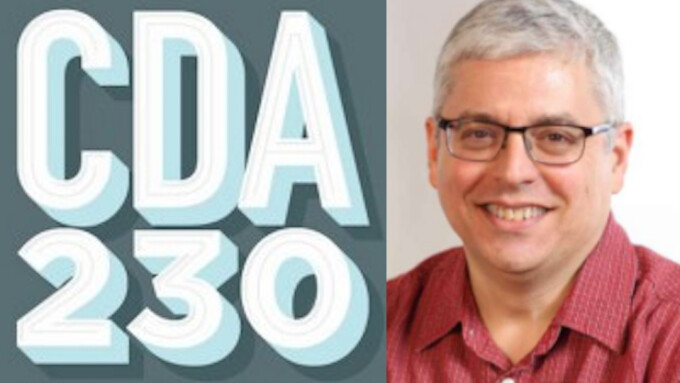NEW YORK — While President Donald Trump and a group of Republican Senators continue railing against Section 230, the deputy director at a liberal-leaning think tank at NYU published a study and an article advocating for the creation of a new government entity to be called the “Digital Regulatory Agency” to oversee the internet.
Paul M. Barrett — a writer who serves as deputy director of the NYU Stern Center for Business and Human Rights under Michael H. Posner, President Barack Obama’s former Assistant Secretary of State for Democracy, Human Rights and Labor — offered his regulatory solution as an alternative to the current bipartisan push to reject Section 230, the so-called “First Amendment of the Internet.”
Barrett gave insights into his research and proposed solution in an essay for the prestigious MIT Technology Review entitled, “Why the Most Controversial U.S. Internet Law is Worth Saving,” published today.
“Donald Trump and Joe Biden both want to throw out Section 230,” reads the subhead. “Here’s why America should fix it instead.”
“U.S. president Donald Trump and his Democratic opponent, Joe Biden, agree on at least one issue: the arcane federal law known as Section 230 of the Communications Decency Act,” Barrett begins. “On September 8, Trump tweeted that Republican lawmakers should 'repeal Section 230, immediately.’ With similar urgency, Biden had told the New York Times last December that ‘Section 230 should be revoked, immediately.'"
Barrett concedes that “there are real problems with the way Section 230 is worded today, but that doesn’t mean lawmakers should toss the whole thing out.” Instead, he argues, “its core ought to be preserved, primarily to protect smaller platforms and websites from lawsuits. At the same time, the law should be updated to push internet companies to accept greater responsibility for the content on their sites. Moreover, the U.S. needs a specialized government body — call it the Digital Regulatory Agency — to ensure that this responsibility is fulfilled.”
This Digital Regulatory Agency, in its incipient stages at the moment, sounds very much like an FCC for the internet.
Retooling Section 230
Barrett’s full argument is the core of a new report from the NYU Stern Center for Business and Human Rights, a liberal-leaning think tank headed by Posner, and overseen by a board including influential Democratic donors, members of the Kennedy family and Craigslist founder and philanthropist Craig Newmark.
“Retooling Section 230,” Barrett’s article conjectures, “isn’t the only way to improve the conduct of social-media platforms. It would also be worth creating a specialized federal agency devoted to the goal. The new Digital Regulatory Agency would focus on making platforms more transparent and accountable, not on debating particular pieces of content.”
“For example, under a revised Section 230, the agency might audit platforms that claim their algorithms do not promote sensational material to heighten user engagement. Another potential responsibility for this new government body might be to oversee the prevalence of harmful content on various platforms — a proposal that Facebook put forward earlier this year in a white paper.”
This bureaucratic alternative to the current EARN IT Act, PACT Act and a number of other proposals being studied in Congress is only at the “policy paper” level at this stage, but it could become a middle-of-the-road compromise in the eventuality of a Democratic administration.
To read Paul M. Barrett's "Why the Most Controversial U.S. Internet Law is Worth Saving,” visit the MIT Technology Review.




